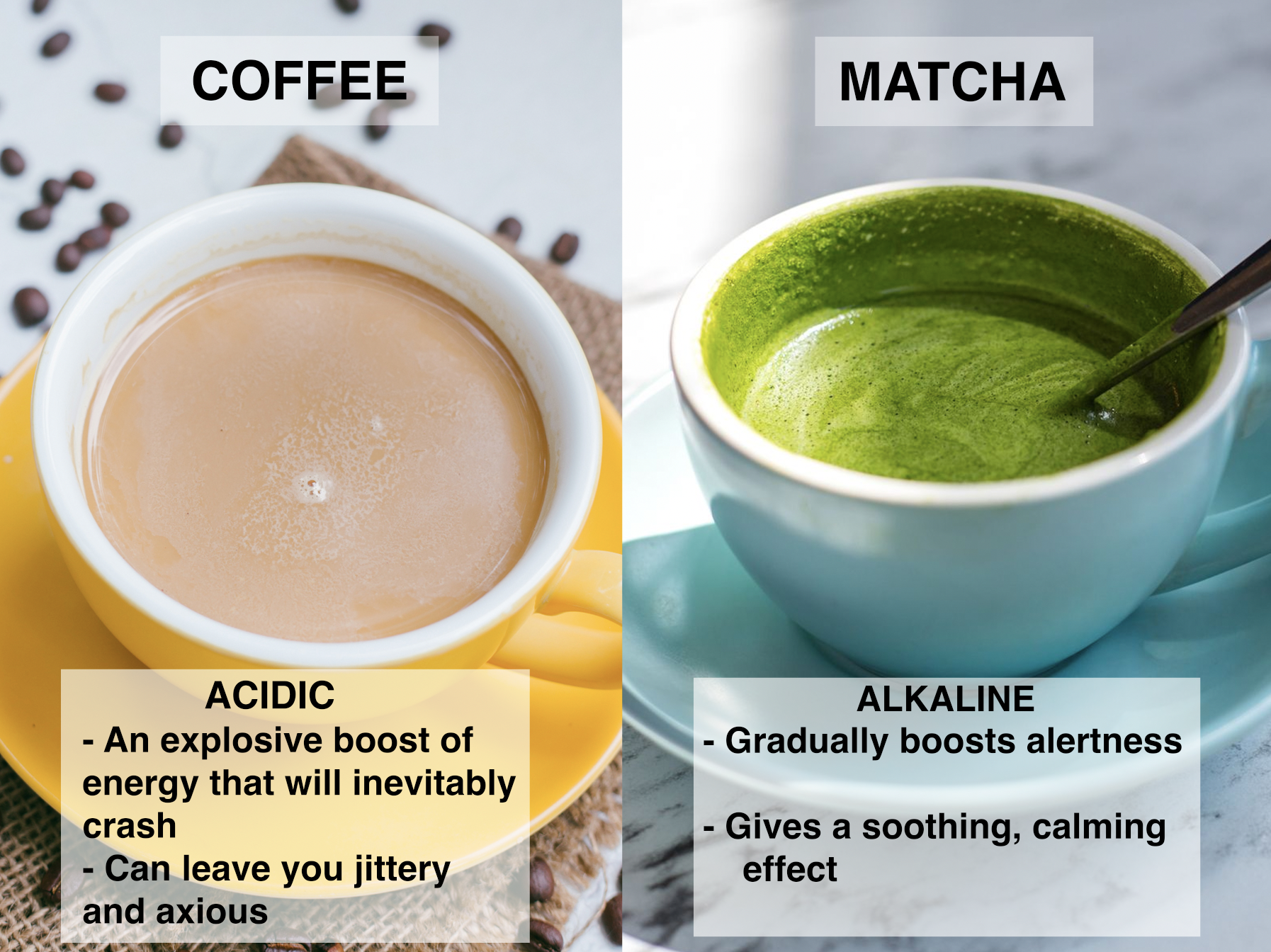Green tea is often praised for its health benefits. But is it alkaline or acidic?
Understanding the pH level of green tea can help you better integrate it into your diet. The pH scale measures how acidic or alkaline a substance is. Foods and drinks can affect your body’s pH balance. Green tea, known for its antioxidants, has a pH level that might surprise you.
Whether you’re looking to manage acid reflux or simply curious about green tea’s properties, knowing its pH level is important. In this blog, we will explore whether green tea leans towards being acidic or alkaline. We’ll also discuss how this impacts your health. So, let’s dive into the world of green tea and discover more about its pH level.
Green Tea Basics
Green tea is a popular beverage known for its health benefits. Many people wonder about its pH level. Is green tea alkaline or acid? Let’s start with the basics of green tea.
Origins Of Green Tea
Green tea originated in China over 4,000 years ago. It has a rich history in traditional medicine. The tea is made from the leaves of the Camellia sinensis plant. These leaves are quickly heated after picking. This process prevents oxidation and preserves nutrients.
Nutritional Profile
Green tea is packed with antioxidants called catechins. It also contains vitamins like A, C, and E. These nutrients help protect the body from damage. Green tea has a small amount of caffeine. It provides a gentle energy boost without the jitters. The tea is also low in calories, making it a healthy choice.

Credit: in.pinterest.com
Understanding Ph Levels
Understanding pH levels is essential in determining whether green tea is alkaline or acid. pH levels indicate how acidic or alkaline a substance is. The scale ranges from 0 to 14, with 7 being neutral. Numbers below 7 are acidic, and those above 7 are alkaline. Let’s explore the importance of pH levels in our body and how green tea fits into this spectrum.
Acidic Vs. Alkaline
Acidic substances have a pH level below 7. They include things like vinegar and lemon juice. Alkaline substances have a pH level above 7. Examples include baking soda and certain vegetables. Our body’s pH balance affects overall health. An imbalance can lead to various issues.
Importance Of Ph Balance
Maintaining a proper pH balance is vital for optimal health. Our body strives to maintain a slightly alkaline pH level. This balance helps in digestion, energy levels, and immune function. Drinking beverages with a balanced pH can support this natural state. Green tea’s pH level plays a role in this balance.
Green Tea And Its Ph
Green tea is slightly acidic, with a pH level around 7. This mild acidity makes it gentle on the stomach.
Green tea is not just a refreshing beverage. It also has many health benefits. Understanding the pH level of green tea can help you know its impact on your body. The pH level of a substance shows if it is acidic, neutral, or alkaline. This is important for people who are mindful of their diet and health.Testing Green Tea’s Ph
To know if green tea is alkaline or acidic, testing its pH is essential. You can use pH strips for this. Brew a cup of green tea and let it cool. Dip the pH strip into the tea. The strip will change color. Compare this color with the pH scale on the strip package. Generally, green tea has a pH between 7 and 10.Factors Affecting Ph
Several factors can affect the pH of green tea. The quality of the tea leaves matters. High-quality leaves tend to be less acidic. The brewing time also plays a role. Brewing for a shorter time usually results in a more neutral pH. Water quality can impact pH too. Using pure, filtered water helps maintain a more neutral pH level. The addition of lemon or honey can change the pH as well. Lemon makes the tea more acidic, while honey has a lesser impact. “`
Credit: uphaartea.in
Health Benefits Of Green Tea
Green tea has been celebrated for its numerous health benefits. From boosting metabolism to enhancing brain function, green tea offers a range of advantages. This section delves into specific health benefits.
Antioxidant Properties
Green tea is rich in antioxidants. These compounds help protect cells from damage. The most powerful of these is EGCG (Epigallocatechin Gallate). EGCG fights free radicals in the body. This reduces oxidative stress and inflammation.
Consuming green tea regularly can improve overall health. It may lower the risk of chronic diseases. Some studies suggest green tea can even help prevent cancer. Its antioxidant properties are truly remarkable.
Digestive Health
Green tea aids in digestion. It can soothe the digestive system. Drinking green tea after meals can reduce bloating and gas. The catechins in green tea also have antibacterial properties. They help maintain a healthy gut flora.
Regular consumption can improve bowel movements. It may also reduce the risk of gastrointestinal disorders. Green tea is a gentle and effective way to support digestive health.
Potential Acidic Effects
Many people enjoy green tea for its health benefits. But some worry about its potential acidic effects. Is green tea alkaline or acidic? Let’s explore its impact on stomach acidity and acid reflux.
Impact On Stomach Acidity
Green tea has a slightly acidic pH level, around 4.5 to 5.5. This can impact stomach acidity. Drinking too much green tea might increase stomach acid levels. This could lead to discomfort for some people. For those with sensitive stomachs, it’s best to drink green tea in moderation.
| Type of Tea | pH Level |
|---|---|
| Green Tea | 4.5 – 5.5 |
| Black Tea | 4.9 – 5.5 |
| Herbal Tea | 6.0 – 7.0 |
Acid Reflux Considerations
People with acid reflux should be cautious. Green tea’s acidity can trigger symptoms. Heartburn, regurgitation, and indigestion are common signs. To reduce these effects, drink green tea after meals. Avoid drinking it on an empty stomach. Also, try low-caffeine or decaffeinated green tea. This can help minimize acid reflux symptoms.
- Drink green tea after meals.
- Avoid on an empty stomach.
- Choose low-caffeine or decaffeinated options.

Credit: blog.fusionteas.com
Alkaline Properties
Many people are curious about the properties of green tea. One common question is whether green tea is alkaline or acidic. Understanding the alkaline properties of green tea can help in making informed dietary choices. Let’s explore this topic further.
Alkaline Diet Trends
The alkaline diet has gained popularity in recent years. This diet focuses on consuming foods that help maintain a balanced pH level in the body. Proponents believe that an alkaline diet can improve health and well-being. Foods like fruits, vegetables, and some teas, including green tea, are often included in an alkaline diet.
Green Tea’s Role
Green tea is known for its numerous health benefits. It contains antioxidants and other nutrients that promote overall health. Many people wonder if green tea is alkaline or acidic. The answer lies in its composition. Green tea is slightly alkaline, making it a suitable choice for those following an alkaline diet.
Drinking green tea can help maintain a balanced pH level. This is due to its natural compounds. Including green tea in your daily routine can contribute to a healthier lifestyle. Enjoying a cup of green tea can be a simple step towards better health.
Comparing Green Tea With Other Beverages
When it comes to understanding the pH levels of beverages, green tea often comes into the conversation. But how does it compare with other popular drinks? Let’s take a closer look at green tea, coffee, and herbal teas.
Coffee Vs. Green Tea
Coffee and green tea are both widely consumed. They have different pH levels.
| Beverage | pH Level |
|---|---|
| Green Tea | 6-7 |
| Coffee | 4-5 |
Green tea is closer to neutral on the pH scale. It has a pH level of 6-7. This makes it less acidic compared to coffee.
Coffee, on the other hand, has a pH level of 4-5. This means it is more acidic than green tea. Drinking coffee can lead to acid reflux for some people.
Herbal Teas And Ph
Herbal teas are another popular choice. They come in many varieties.
- Chamomile Tea
- Peppermint Tea
- Hibiscus Tea
Most herbal teas have a pH level between 6-7. This is similar to green tea.
Chamomile tea has a pH level of around 6-7. It is gentle on the stomach.
Peppermint tea is also in the 6-7 pH range. It is soothing and refreshing.
Hibiscus tea, however, is more acidic. It has a pH level of 3-4.
Understanding the pH levels of these beverages helps in making better choices. Green tea is generally less acidic, making it a favorable option.
Practical Tips For Consumption
Green tea is popular for its health benefits. Understanding how to best consume it can enhance its effects. Here are some practical tips for enjoying green tea, whether you are concerned about its alkalinity or acidity.
Brewing Methods
Proper brewing is essential for a perfect cup of green tea. Follow these steps:
- Use fresh, cold water for boiling.
- Heat water to around 175°F (80°C). Avoid boiling water.
- Pour water over the tea leaves.
- Steep for 2-3 minutes. Longer steeping can make the tea bitter.
- Strain the tea and enjoy.
For a more alkaline brew, use filtered or spring water. This reduces acidity.
Combining With Other Foods
Pairing green tea with the right foods can balance its acidity and enhance its taste. Consider these combinations:
- Almonds: These nuts are alkaline and complement green tea.
- Bananas: This fruit neutralizes acidity and adds sweetness.
- Spinach: A leafy green that is both alkaline and nutritious.
For a refreshing drink, add a slice of lemon. This adds flavor and vitamin C. You can also add honey for sweetness. Honey is mildly alkaline and balances the tea’s acidity.
| Food | Benefit |
|---|---|
| Almonds | Alkaline, complements tea |
| Bananas | Neutralizes acidity, adds sweetness |
| Spinach | Alkaline, nutritious |
Experiment with these combinations to find your favorite.
Frequently Asked Questions
Is Green Tea Alkaline Or Acidic?
Green tea is slightly acidic but less so than black tea. It has a pH level around 7.
Does Green Tea Affect Stomach Acid?
Green tea can increase stomach acid in some people. It may cause discomfort if consumed on an empty stomach.
Can Green Tea Balance Ph Levels?
Green tea is not strong enough to balance body pH levels. It can, however, promote overall wellness.
Is Green Tea Bad For Acid Reflux?
Green tea may aggravate acid reflux in sensitive individuals. It’s best to consume it in moderation.
Conclusion
Green tea offers many health benefits. Its pH level can vary. It typically falls between neutral and slightly acidic. Drinking green tea in moderation is generally safe. It supports digestion and boosts metabolism. Always consult your doctor for personalized advice.
Enjoy green tea as part of a balanced diet. It can be a refreshing and healthy choice. Stay informed and make choices that suit your health needs.







